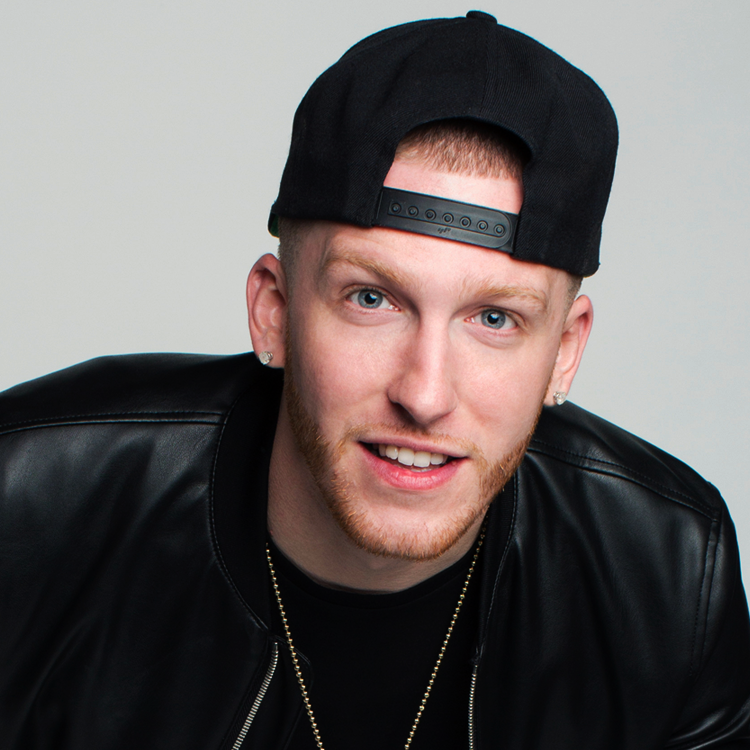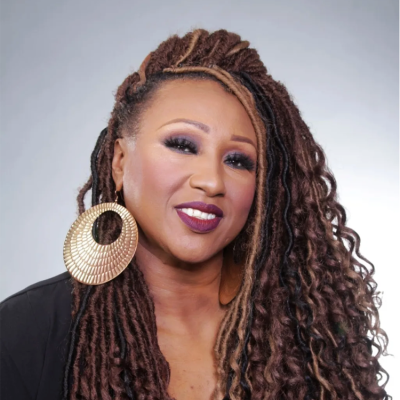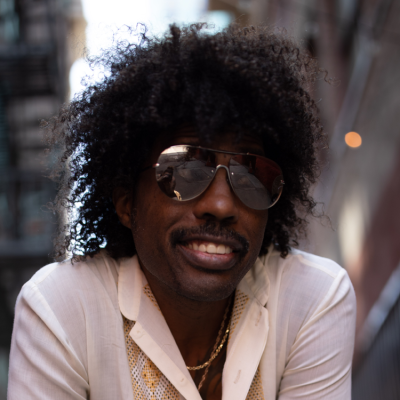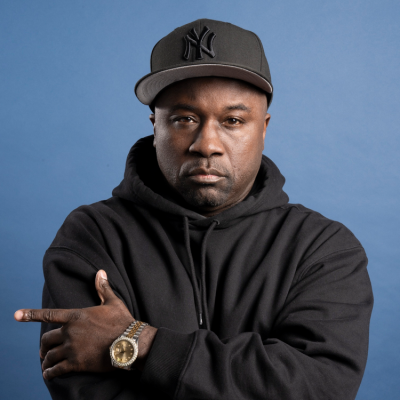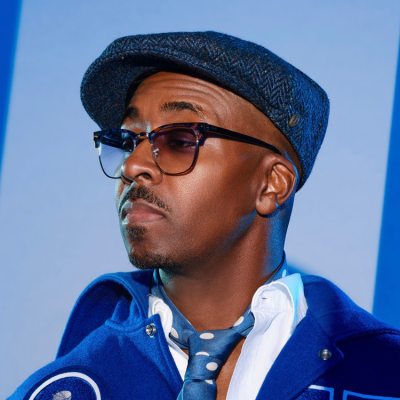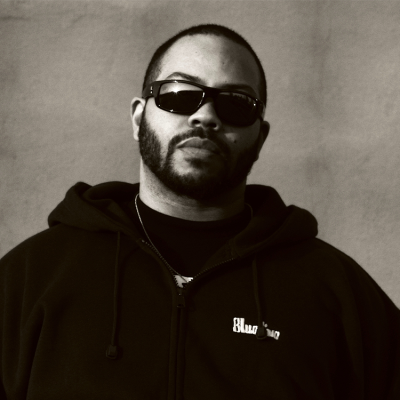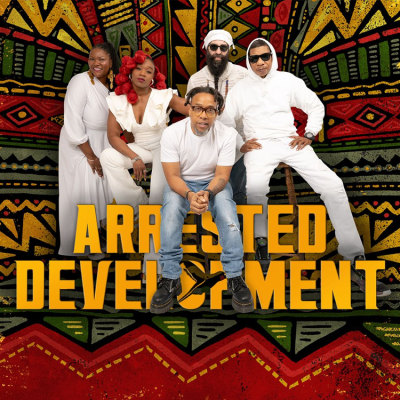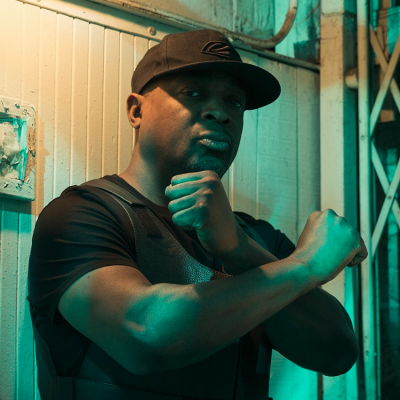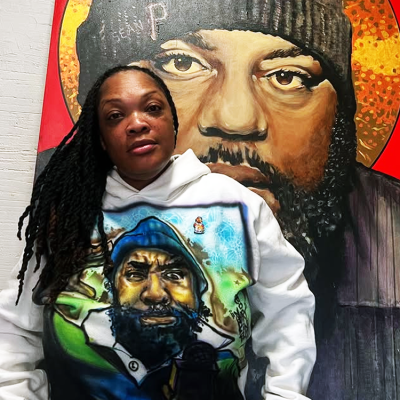![]()
When it comes to the music industry, DJ Drewski is probably one of its hardest working inhabitants.
The New Jersey born deejay rises from behind the turntables to the producer seat bringing together today’s hottest Hip-Hop and R&B artists on his debut album “Seat At The Table.” Each artist and every beat on this project was purposefully acquired as a testament of Drewski’s relationships and reputation in the streets for supporting new talents. Having worked with buzzing artists such as A Boogie, Fivio Foreign, Coi Leray, DreamDoll, Rubi Rose, Desiigner, Sleepy Hallow, Sheff G, TJ Porter and more, shows that DJ Drewski has an eye for talented artists on the come up.
Yo! Raps teamed up with the popular HOT 97 radio host and standout cast member on “Love & Hip Hop: New York” to talk about his blazing debut album “Seat At The Table”, discovering new talent, being a radio host and much more.
You have a hot new single and video entitled “2020 Vision” out right now. I know it features Sheff G and Sleepy Hallow. Just kind of tell me the creation process and how this record kind of came to be?
I had a relationship with Sheff G and Sleepy Hallow and when I came up with the idea of putting this album together, there were like, top three, you know out of artists that I picked, and where I said, I need to make sure I get on them early, I need them on my project.
So the first song we did, it wasn’t even Sheff and Sleepy, it was a record with Pop Smoke and Lil Tjay and I did that song and that’s what kind of kicked off the whole project idea. And once I did that, I said, ‘You know what, my second favorite artists right now are Sheff and Sleepy.’
I never really separated them, I just keep them like a team and it was as simple as hitting them up. I said, ‘Yo, I’m working on this project, I really want you guys on it. I got one record done, this will be the second one’ and they were like, ‘Whatever you need’ and we went to the studio.
The energy in the room that day was, you know, super exciting, because at that time, they didn’t have none of their big hits out yet. You know Sleepy, he didn’t have his big record out, which has over like 100 million streams to date… this was before that. So they was still like very excited to do it.
We built the beat from scratch and they just went in there and started, you know, going crazy and just seeing their chemistry together was, you know, for me as a producer, as a DJ and my first time actually working with them and being in a studio, I love the way they work and they bounce ideas off of each other and just, you know, the way they interact, it was pretty ill.
“2020 Vision” comes from your just unleashed debut album “Seat At The Table” and although pretty self-explanatory, still kind of tell me conceptually, why you decided to title this first time out “Seat At The Table”?
It’s like a buildup of a couple of things. One, you know, all the hard work and hustle and grind I’ve been putting in when I first started working at HOT 97 in 2008 and I was doing video production. Then I worked my way up to, you know, board opting and then being a show producer for “The Angie Martinez Show” and then I got my own show on the air and doing the clubs and being outside in the streets and doing events and building relationships with artists and doing tours with Maino and shows with Jim Jones and Dipset.
So it was just a buildup of just all the hustle and grind for years and then, you know, all my relationships and what I’ve been doing the past couple years when it came to new artists, especially in New York and New Jersey.
The first time A Boogie wit da Hoodie was on the radio is when I found it in the streets and I bring it to radio and now look at him… he’s a superstar! Same thing with Pop Smoke, same thing with Lil TJay, and Fivio Foreign. So all these artists, I was bringing them to radio very early and watching them grow and I said, ‘We have this gift, we were on these artists early, we know what’s happening in the streets.’
I kind of want to build off of that and that’s why the project mostly, you know, the records and the artists are younger new artists and then the whole “Seat At The Table” concept is I wanted to show love and respect to the ones that did it before us. In New York City it is a little different, super aggressive. Nobody just kind of gives you a position, you got to go and take it. And I think that’s what we’re trying to establish is like, we appreciate the ones that did it before us but they’re not going to hand nothing over.
So we just got to go take it and you know, it’s kind of just establishing that, ‘Yo, we want our seat at the table.’ Once we get that, then we’re going to go crazy for both myself and for the artists that are on the tape. These artists I feel deserve their shot. I got a record with Coi Leray that we did a while ago. Coi and Sada Baby are on the project and today Coi Leray is like super hot.
That was actually going into my next question. I was going to talk about that some of the names you mentioned are definitely some of the hottest in the game right now. Did you already have that mindset or did it just develop through working relationships along the way or did you kind of have a vision of how you wanted this project to look when it was finished?
It’s just like a blessing how things worked out. So some records didn’t make the tape. Like I mentioned, the Lil Tjay and Pop Smoke record we had. That one, unfortunately didn’t get cleared in time. And that was one of their first records they did together before “Mood Swings.” It was actually the same session that they did “Mood Swings,” but Pop Smoke and Lil Tjay never worked together and I have relationships with both of them.
We did the record called “Mary Jane.” It did get leaked but it never got cleared so we couldn’t officially put it out but the blessing to that is the verse on “Mary Jane,” the Pop Smoke verse, we actually put it on “The Woo” record with 50 Cent and Roddy Ricch.
It’s just crazy that all these new artists started popping like crazier and crazier. And one of the early records I did with the females was DreamDoll, Rubi Rose and Molly Brazy. We have Rubi in the video for “Water”, she did the record and maybe like three months later, she starts popping and now she’s in Cardi B’s video.
As you know some of the names on the project we know now but then there’s new names that you might have never heard before that I feel like, “Yo, they’re next!” I got a record with an artist named Mr. Chicken out of Jersey and he’s on fire right now.
Since this is your debut album, how would you describe or define the style of music that you’re kind of bringing to the forefront?
The project is just young, it’s fresh, it’s new. It’s for today’s generation, it’s all their favorites and it’s for people that are late on music. It’s kind of giving you like a heads up. Like if you listen to this project and see the artists that I’m working with, you’re kind of ahead of the game now. I’m putting you ahead of the wave. All the cool people are usually ahead of the wave and I just want everyone to feel like, ‘Yo, I’m cool. I know what’s going on. DJ Drewski got me in tune!’
For those that don’t know, kind of tell me your backstory. How did it all begin for DJ Drewski?
It started at a very young age. I grew up in an urban city named Elizabeth in New Jersey. In the intro of the “2020 Vision” video, you kind of see like the neighborhood I grew up in. I shot some scenes in the projects that we grew up like right across the street. We listened to Hip-Hop music growing up, that’s really all I knew. Even though like at home, my mom would play Pop stuff and then I had my pops, my dad play Rock ‘n’ Roll but my older brother was like heavy into Hip-Hop, my older cousin, so that’s what I was around. I just I fell in love with music!
DJ’ing was just like a hobby, which, you know, turned into a career. But at first, it was just fun and, you know, doing like house parties, doing baby showers, doing small events, I kind of just fell more in love with it and the fact that I’m like, ‘Wow, I can play music and make people happy.’ And for that time, I’m on the set, people kind of get out of their reality. I thought that whole concept was pretty dope and just kept going and I learned.
These guys on the radio, the Funk Flex’s and DJ Enuff’s, Mister Cee’s, this is what they do for a living. This is not part time, it’s not a hobby, they turned it into a career and that kind of just inspired me to say, ‘You know what, these guys opened that door, they’ve been doing it as a career and I’m gonna follow my dream.’
And I did the same, like following in their footsteps. When I do get in a position, I just want to bring something more to the game and I think that’s really where we’re at now, when it comes to producing the records is like, we did the DJ’ing, we you know, we love that, but what can we bring to the game, not just keep riding the wave. It’s like we want to add more to it and I think that’s why we started this project.
When did you make the decision that you want to make this your livelihood?
It started from the music. The music first like, ‘I love this type of music and I can play it’ and then when I realized, these guys turned it into a career and they make a living off of it and that’s what they do… that’s when I was like, ‘Oh, I gotta take this serious!’ I just don’t want to be the local DJ, I want to be able to travel the world. I wanted to create a brand more so than just being a DJ.
You briefly touched on how you kind of went from the DJ’ing to where we’re at now with your first album. But what was that transition actually like for you from being a DJ to a producer?
One, you know, just having some sort of ear and talent as a producer. As a DJ, you could just hear certain things and you feel like what works, what doesn’t work, what sounds good, what people want. And so knowing music and knowing where we’re at with the music and what the new generation is listening to and what they like, it was like, ‘Okay, I already know that because I play all these records, I play all their favorite records.’
Now, let’s create that formula. Let’s give them more and I think just being a DJ, knowing the music, it’s a little more easier to when you’re going in to create the music if you’re working with producers, and you’re working with artists you kind of, you know, can guide them on what you want.
Like, you know, this is what I want, this is the sound I want. You know, we want a party record. So we’re going to make a party record. We know the tempos, we know the BPM’s, we know certain sounds that work, certain drums and snares and so you kind of already know what’s working.
This unfortunate last 12 months of what we’ve been having with this very devastating pandemic, how were you able to kind of keep not only yourself motivated, but what were you able to do to kind of even though you have your pulse on what’s going on, or your finger on the pulse of what’s going on, how have you managed to kind of keep that during this current climate that we’ve been in?
So with the whole pandemic, I feel like, one, it was a blessing for me, because prior to the pandemic, you know, the workload was just super heavy. So I was nonstop working and sometimes I lose focus on what I want to do and then what I’m doing. So it’s like, I always wanted to put out the project and put music together, but you just say to yourself, ‘Oh, I don’t have time, I don’t have time! I’m DJ’ing, I’m on the road, I’m down at the station, I’m doing radio, I’m doing interviews!’ So it’s like, the pandemic actually helped slow things down to where I can focus on putting the record together, putting the project together. So that was one good thing.
The second great thing about the pandemic was you seen the love for DJ’s just flourish like DJ’s, kind of I feel like held down, especially early on and you know, some of the more popular ones like D-Nice, who got a lot of recognition for like what he did, it was just like, a time for DJ’s to flourish and so to remind people of the importance of a DJ.
And I felt like before the pandemic, I was already building what I have, you know, my own studio, my own podcast besides being in nightclubs and events and everything else like radio, I was doing it right from my studio. I can do podcasts, I still do interviews, we can jump on Zoom, we can do all that virtually and, you know, the time that I would have spent in the club, I just turned into producing the records. And I think it kind of worked out in my favor and it’s a blessing that I was able to stay busy, come up with new ideas.
Being that, you know, especially in New York, a lot of people know me for breaking the new artists and bringing new artists to the forefront. I said, ‘Well, I’m doing it on the radio, we’re going to start doing it virtually too.’ So we started the whole YouTube like The New MVMT Live YouTube show where I allow artists to submit their music and we kind of review it and play it and it just becomes like a domino effect where one artist sees it and the next one wants to be a part of it and that just started building up crazy.
Let’s talk about HOT 97. That kind of seems to be your first foray into this professionally and it kind of allowed you to do everything that has led up to this point now. But how did that whole thing come about in the first place? How were you able to bring yourself to the attention of the powers that be at the station?
So a station like HOT 97 in New York or Power 106 in L.A., some of the big stations, those are like as a DJ when you’re on the station that’s like being in a league. HOT 97 is like playing for one of the biggest teams but I knew like in New York, the competition was so hard and there’s so many talented people.
But so early on, I was interning for DJ Cipha Sounds. He was my mentor. He’s the one that I credit for giving me like my break. You know, letting me get my foot in the door. So what I would do is at the time Cipha Sounds who was on HOT 97, he was on Sirius Satellite Radio. He was the host of MTV’s “Sucka Free Countdown.” It was like a video countdown show. So I would leave high school, jump on the train, go into the city and sit in the studio audiences of like “106 & Park” and “Total Request Live” and then “Sucka Free Countdown” where Cipha was hosting. On my way out, I would like pop my head in the dressing room and say, ‘Yo Cipha! I’m a DJ, if you ever need help, let me know. I’ll be your intern’ and I did that maybe like 10 times. And then finally, I get a call like, ‘Yo, you still interested?’
So I started interning for Cipha. Now, I’m in these buildings. I’m in Sirius. I’m in HOT 97. I was shooting all Cipha’s video content and then HOT 97. They started building their digital department and they’re like, ‘We need people’ and they’re like, ‘Who shoot Cipha stuff?’ and he’d say, ‘Oh, that’s my man, Drewski!’
So then HOT 97 gives me a job, board opting, you know, on the weekends for radio, but then shooting and editing all the videos for like the digital department. So I’m doing that for a few years and building relationships with the jocks like Mister Cee and DJ Enuff and Angie Martinez.
So then it comes when Angie needs a new producer for her show and they knew like my work ethic, my loyalty and my hard work. Angie was like, ‘I like the fact that when I do an interview, Drewski turns it around the same day.’ So she was like, not only can he be my producer, but he could kind of be my content producer as well. So they gave me the position as “The Angie Martinez Show” producer.
But while all this is going on, I’m still DJ’ing and building my name outside the station, because I knew how important that was. It’s like, you got to be lit in college in order to get drafted to the league. So I kept my name good in the streets and DJ’ing while all this was going on and it kind of all just came together at one point.
That’s inspiring! Do you feel like or I guess would it be fair to say that you’re happy with the current state of Hip-Hop? It seems like the East Coast is kind of back in charge musically.
I love the state of Hip-Hop but not just because the East Coast artists are back. I like the diversity. I love like when we can get big artists from the West, like new artists, and we see everyone kind of working together and East Coast artists working with Down South artists. I really enjoy the fact that now everyone is able to get on stuff early because it gets on the streaming sites. You don’t gotta wait. As soon as the record drops, they can be on it.
In addition to everything else that you’ve accomplished, you’ve also kind of conquered reality TV at this point with the “Love & Hip Hop: New York City” edition. How was that for you? What was that whole experience like? And is there anything that you’re going to continue to expand on in that particular realm of platform?
Oh yeah, for sure! For the “Love & Hip Hop” experience, you know, like, it was an experience, just like that, like I knew why I was doing it, and what I was doing it for, like, for even from DJ’ing from radio, from all this, from making music, nothing has ever been about money, right? Nothing I did was ever like for the money. And it just happened to work out better like that. I knew that doing “Love & Hip Hop,” which is probably one of the biggest shows in our culture and Hip-Hop, you know, it’s just great exposure, it just has to be done the right way.
So it’s like, you know, I can make good TV but I’m not going to look like a clown or a fool and kind of hurt my brand. So just going into it, you know, it’s like a little scary, because you hear all these things about “Love & Hip Hop,” and this and that and then I realized, ‘Well, it’s not the show that makes the characters, the cast themselves, or what they give is what you see, right?’
So you’re not forced to do something you don’t want to do. So when you see someone like the goofy and crazy characters, that’s not nobody telling them what to do, that’s them really doing that, because they feel like, that’s gonna make good TV, or that’s going to give them the exposure they want so I already kind of knew how much I was going to give.
Well, I think you executed it brilliantly because of the fact that there is a real fine line there and if you cross it, then yeah, it could definitely affect you in a negative way but I think you played it perfectly.
Thank you! Appreciate it.
Looking ahead for me, say 5, maybe even 10 years down the line, where do you see yourself?
I’m definitely gonna be putting out more projects, working with more artists and I want to say in the next couple of years, you know, with everything going on, and me actually talking about being ahead of the wave and breaking these artists. Eventually, at some point, when I’m able to focus more on developing artists, I want to turn my company into a production company and start signing these young guys and giving them the platforms and the A&R’ing, you know, everything they need to make a successful artist. So definitely looking to do that. So the whole MVMT brand, I see it going in a direction where we’re turning into a production company working with these major labels, and just, you know, exposing these artists that we feel are talented and that deserve a shot.
In having said that – for someone that’s trying to get into this business – what would be the best advice that you could give them on their own musical journey?
If they’re an artist or they’re like a DJ, it’s kind of what you need to do now and if you just look around, especially like, if you follow the record label formula, they’re not developing talent anymore so you got to come into the game, somewhat developed, and show them, like your leverage.
So I just suggest, if you’re trying to get into this game, as an artist, start building it on your own, don’t look for no handouts, don’t look for nobody to help. There are ways to, especially with digital and using social media, to build your own brand to a certain point.
I’m not saying you got to get a million streams on your music, but show that your content is well put together. Everything that a label would look for. I’d usually say to them, ‘Yo, who are your favorite artists? Is it Drake or is it Da Baby? Look at how they’re set up when it comes to their music, when it comes to their imaging, their branding, and kind of get as close as you can on your own and that’s really going to put you on that level to where people are paying attention.’
That’s some really great advice! For the immediate future, what’s next for you? The single and video for “2020 Vision” is out now, your debut album “Seat At The Table,” dropped on April 9.
The focus right now, because when we put something out, I just like to put all my energy behind it. I asked all these artists for a huge favor, every record we were able to put on there and get cleared because there was some that didn’t. Which means maybe we’ll have a deluxe, maybe we’ll have a whole separate project.
I definitely want you to know, being from New York right now, the big sound is the drill sound so now that “Seat At The Table “dropped, I’m already collecting and working with a lot of these young drill artists. I want to put a whole like drill compilation album together next. But I just want to focus and put all our energy on “Seat At The Table” first that gives all the artists that did participate a fair shot. We’re going to shoot more videos we’re going to, you know, go crazy with this.









